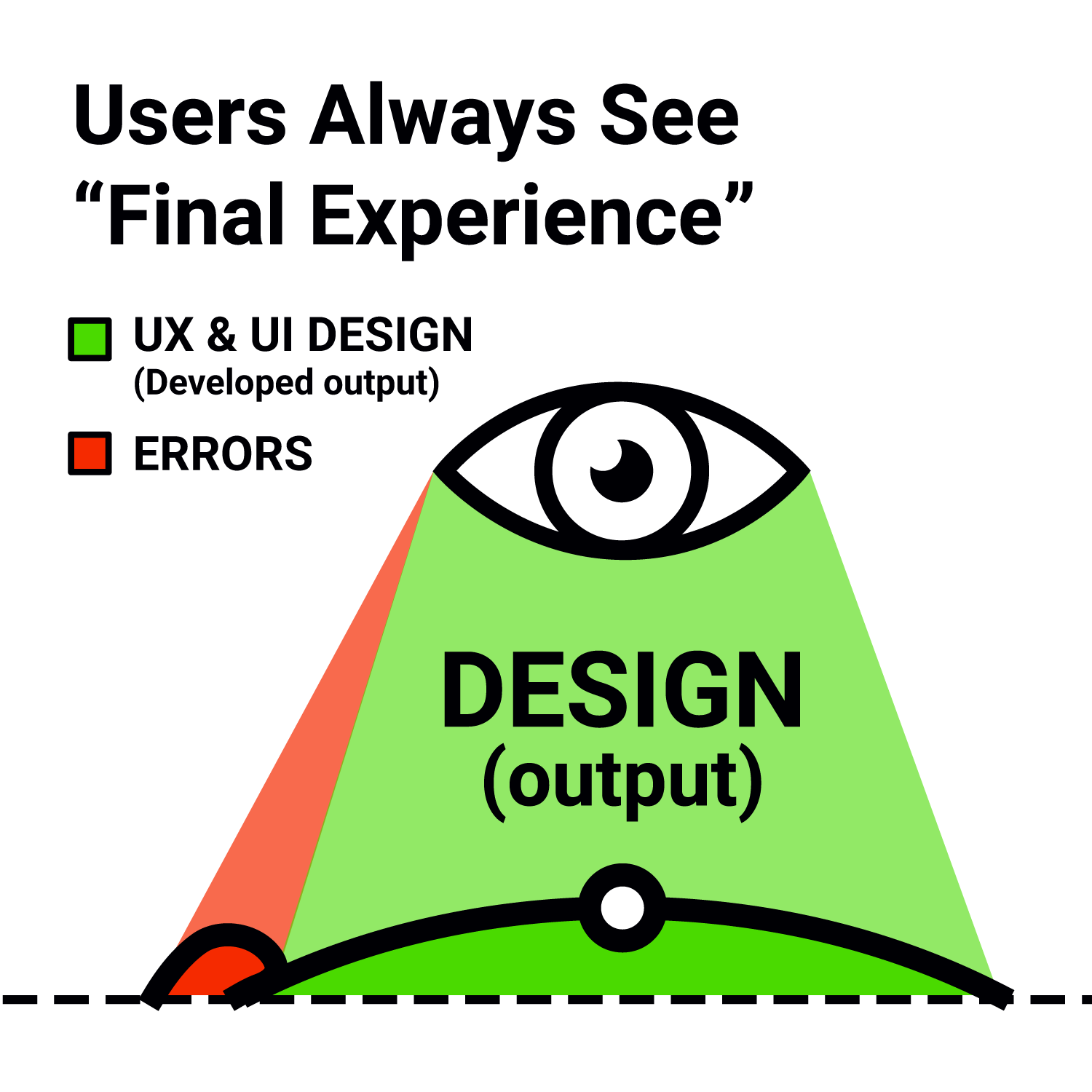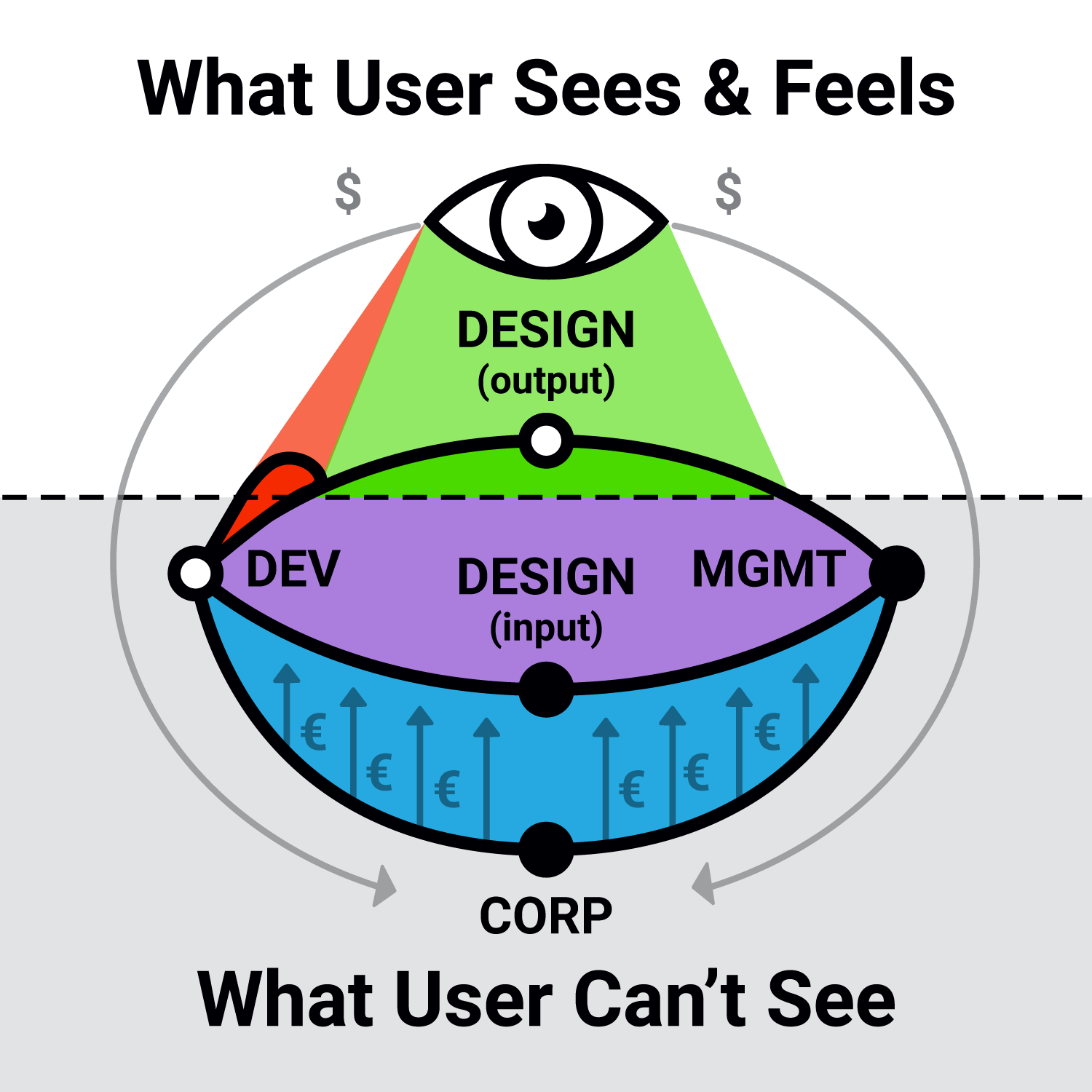
What is User Sight?
While working in numerous agencies and companies over the years I noticed that our design work is still struggling to be focused and prioritised even in consumer oriented products.
Time limits, constant delivery focus, priorities and so on tend to deviate the design and put it as secondary importance.
In agile approach this is even more noticeable as often 2 weeks delivery is a light motif for companies and agencies, but does the design needs to suffer for this?
We need to agree that there will never be The Final Design the same way as there will never be A Perfect Code as all things change constantly and evolve to adapt to the current needs of people.

With our team mates and coworkers we love to brainstorm, plan, project and get inspired by sharing ideas and building block for our future deliveries, but how do we tackle the execution of those ideas?
Do we have a feeling that fear of time running over us is eating us up and pushing us on the edge when it comes to delivery?
Did you ever had a project in which you and your team worked so hard but when you needed to deliver the process was very painful and in the end design suffered with the promise that we will get back to it and iterate on it?
In 90% of cases we don’t get back to it as new requests and ideas are pushed into horizon and “old” is left behind (not noticing that what for us internally “old” is still “new” if available for our new users who are experiencing that part of the product for the first time).
There is "No Final Design", but there is only "Final Delivery" and it is a constant.
The important detail to understand is that our end-user will always see our product and experience it as the final one.
The users do not know how great we think we are, how much brainstorming went into the project, how difficult it was due to multiple dependencies etc.
They do not know how much more great ideas we have in the backlog or stored in some folder on our machines, or in a cloud, or how many great people worked on it, all that will be forever invisible to our user as they will experience only the delivery, only what they can see & feel in the moment of contact with our product.
Our Users will only experience the Design Look & Feel and Errors from Development if any.

That is why I made this model called “User Sight” to map visually the issue and show what will be experienced in the moment of viewing the product from user perception so that we within the company or agency can bring more focus to the design and get the proper priority in deliveries that it deserves.
This is the most important part as the users will put money into our product, the one they can experience, then the money will go and flow into the product again and so on like in The Natural Tree effect (Tree grows, produce fruit, animals pick to eat it, leafs fall to the ground and fertilise the soil, and the tree grows leaf again and again in the same process and the same logic can be applied here).

By understanding this we can clearly see that even our salaries come from our users, customers, players, consumers, gamers, buyers, bookers or how ever we want to call them it is they for whom we get up to work every day (and of course without the great vision and user needs there is no product to start with).
From User Sight, users are putting money directly into our product (on the one that they are experiencing in the moment) and not to the corporate or management.
If the users are not happy with our design delivery (design & dev wise), then there will be no money to payout workers and invest more into the product.
So think more than twice when you promise something to deliver as for the end user that delivery will be the “Final Experience” in that moment while they are experiencing our product.
That moment is where the decision and judgement on the product will take place. (Will they buy our service? Will they recommend it? Will they leave a bad review? Will the bad review stay there even after we fix the issue the next day? For sure it will and it is something to consider.)
All this may sound cliche as it is mostly the common sense, but it is good to mention this, as sometimes we tend to forget to "who" we are building the product for "why" and "where" the real funds or overall value is ultimately coming from.

Having clarity and focus on how “User Experience” works, what it provides, how to manage (test & measure) and prioritise it, especially in an agile approach, brings us closer to an understanding of how to build amazing products and get inspired in ongoing deliveries.
